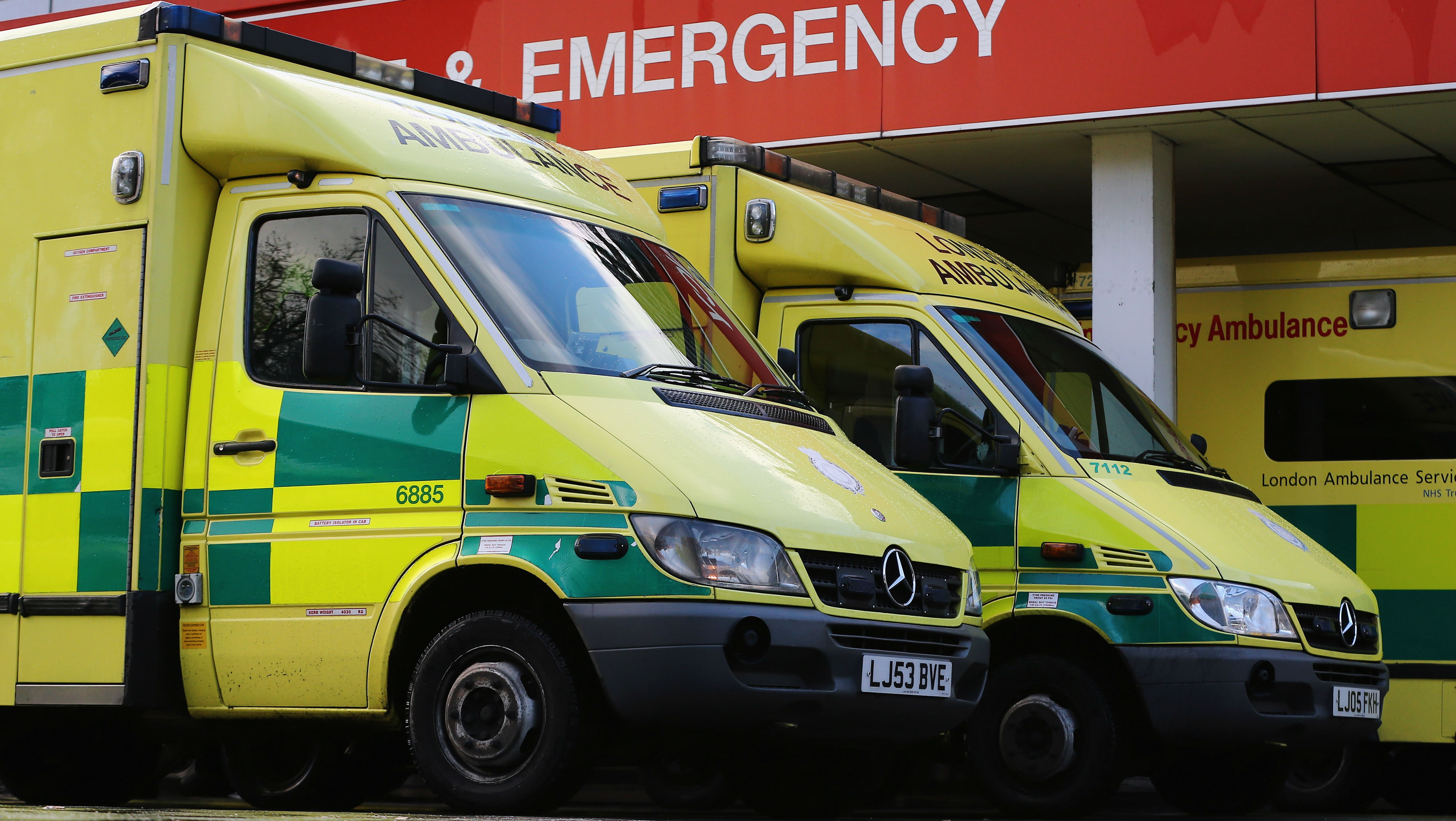NHS falls short on A&E, cancer care and surgery targets
Just one service in the UK hit its objectives in the past 12 months

A free daily email with the biggest news stories of the day – and the best features from TheWeek.com
You are now subscribed
Your newsletter sign-up was successful
Performance targets for cancer care, A&E and planned operations at NHS hospitals across the UK are being missed “en masse”, according to research by the BBC.
Hospitals in England, Wales and Northern Ireland have now missed all of their three key targets for the past 18 months.
Scotland fared slightly better, hitting its A&E target - for 95% of cases to be dealt within four hours - three times in the past 12 months. But it only managed to do so in the summer months, when the workload is generally lightest.
The Week
Escape your echo chamber. Get the facts behind the news, plus analysis from multiple perspectives.

Sign up for The Week's Free Newsletters
From our morning news briefing to a weekly Good News Newsletter, get the best of The Week delivered directly to your inbox.
From our morning news briefing to a weekly Good News Newsletter, get the best of The Week delivered directly to your inbox.
The BBC reports that the three objectives set by the NHS are:
- Maximum four-hour A&E waits
- Maximum 62-day waits for cancer care
- Maximum 18-week waits for operations and treatment
Only one service - run by Luton and Dunstable NHS Trust - in the entire nation hit the targets for all three of these objectives over the past 12 months.
The research also revealed that one in nine patients across the country now wait more than four hours to be seen in A&E, and that the “chances of this have more than doubled in four years”, reports the Daily Mail.
The last time Wales achieved a target was 2010, while England – which hit its NHS objectives 86% of the time in 2012-13 - missed every monthly target last year.
A free daily email with the biggest news stories of the day – and the best features from TheWeek.com
In the wake of the recent slump, the BBC says, ministers have admitted that growing demand from patients has left the NHS “struggling to keep up” as doctors warn patients are suffering.
Hospitals across the UK have faced large-scale staff shortages in 2016-17. NHS bosses claim lack of funding from the Government is a key cause of falling standards of care.
NHS Providers, which represents NHS chief executives, warned in September that the NHS may suffer its “worst winter in recent history” if it does not receive extra funding to pay for more staff.
“We are 50 junior doctors short on our rotas across the hospital,” Colchester Hospital University chief executive Nick Hulme told the BBC last month. “Every day is a constant struggle.”
And the latest annual report by the Care Quality Commission (CQC), warns that the increasing number of “older people who are physically frail, many with dementia”, and “people with long-term complex conditions”, is placing the NHS under “unprecedented pressure”. The health watchdog warns that future is “precarious” for the service.
The Department of Health in England, however, continues to claim that current government funding for the NHS is adequate, and that “inspectors’ findings show most are still providing good or outstanding care”, reports the Daily Mail.
Health Minister Philip Dunne insisted that the Government’s current budget for mental health, social care and A&E services was “enough”. The NHS “was recently judged the best healthcare system in the world, despite the pressures from increasing demand”, he said.
-
 6 of the world’s most accessible destinations
6 of the world’s most accessible destinationsThe Week Recommends Experience all of Berlin, Singapore and Sydney
-
 How the FCC’s ‘equal time’ rule works
How the FCC’s ‘equal time’ rule worksIn the Spotlight The law is at the heart of the Colbert-CBS conflict
-
 What is the endgame in the DHS shutdown?
What is the endgame in the DHS shutdown?Today’s Big Question Democrats want to rein in ICE’s immigration crackdown
-
 A real head scratcher: how scabies returned to the UK
A real head scratcher: how scabies returned to the UKThe Explainer The ‘Victorian-era’ condition is on the rise in the UK, and experts aren’t sure why
-
 How dangerous is the ‘K’ strain super-flu?
How dangerous is the ‘K’ strain super-flu?The Explainer Surge in cases of new variant H3N2 flu in UK and around the world
-
 The ‘menopause gold rush’
The ‘menopause gold rush’Under the Radar Women vulnerable to misinformation and marketing of ‘unregulated’ products
-
 How the care industry came to rely on migrant workers
How the care industry came to rely on migrant workersThe Explainer Government crackdown on recruiting workers abroad risks deepening care sector crisis, industry leaders warn
-
 Could medics' misgivings spell the end of the assisted dying bill?
Could medics' misgivings spell the end of the assisted dying bill?Today's Big Question The Royal College of Psychiatrists has identified 'serious concerns' with the landmark bill – and MPs are taking notice
-
 Washwood Heath: Birmingham's pioneering neighbourhood health service
Washwood Heath: Birmingham's pioneering neighbourhood health serviceIn the Spotlight NHS England chair says there is a 'really good argument this is the model for the future'
-
 The UK's first legal drug consumption room
The UK's first legal drug consumption roomThe Explainer 'Potentially transformative moment in UK drugs policy' as The Thistle opens in Glasgow
-
 How can the UK solve the adult social care crisis?
How can the UK solve the adult social care crisis?Today's Big Question New commission announced to turn our buckling care sector around: yet more delay or finally a way forward?